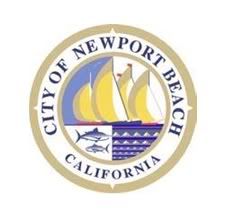WASHINGTON – A federal court has permanently barred John E. Rogers and two of his companies, Sugarloaf Fund LLC and Jetstream Business Limited, from promoting tax shelters that allegedly use distressed Brazilian debt to lower customers’ reported income improperly, the Justice Department and Internal Revenue Service (IRS) announced today. Judge Samuel Der-Yeghiayan of the U.S. District Court for the Northern District of Illinois signed the civil injunction order, to which Rogers consented without admitting the allegations against him.
According to the government complaint, Rogers, a Chicago tax lawyer and former partner at Seyfarth Shaw LLP, designed and promoted three similar scams – the Distressed Asset Debt (DAD), Distressed Asset Trust (DAT) and 743(f) tax shelters – that used hundreds of millions of dollars of low-value, “distressed” debt owed to Brazilian retail companies. In all three of the schemes, according to the injunction suit, Rogers falsely told U.S. customers that the distressed Brazilian debt was highly valuable, that the Brazilian retail companies were real “partners” in Sugarloaf, that hundreds of entities Rogers formed and used in the transactions were genuine companies, and that the customers – after paying Rogers – could claim huge purported losses from the Brazilian debt. The losses were allegedly used to offset the customers’ unrelated U.S. income, with the resulting tax savings far exceeding what the customers had paid Rogers.
In fact, the complaint alleges, the debt was virtually worthless when it was purchased; the retail companies were never genuine partners but simply sold Sugarloaf the distressed debt for pennies on the dollar; the hundreds of companies that Rogers formed and controlled were sham entities that performed no business functions; and the supposed tax losses never existed.
The suit alleged that Rogers’s DAD and DAT schemes generated more than $370 million in improper tax deductions. The IRS listed the DAT and similar tax shelters as tax avoidance transactions in 2008, which required all material advisors of such schemes to disclose their activities to the IRS, obtain IRS reportable-transaction numbers for those transactions, and furnish the reportable-transaction numbers to their customers. Customers would then know they were participating in a reportable transaction and that the reportable-transaction number had to be disclosed on their next-filed tax return. Under federal tax law, customers who fail to include a reportable-transaction number with their returns as required are subject to substantial monetary penalties. Under the injunction order, Rogers, whom the complaint alleges failed to comply with the listed-transaction requirements, must now mail copies of the injunction order to all persons who engaged in any of the three transactions described in the complaint during or after 2003.
“The Justice Department is committed to exposing and shutting down fraudulent tax shelters and their promoters, and injunctions are an important tool in that effort,” said D. Patrick Mullarkey, Acting Deputy Assistant Attorney General for Civil Trial Matters at the Justice Department’s Tax Division. “At the same time,” Mullarkey noted, “taxpayers should be keenly aware that if the tax benefits from a transaction seem too good to be true, they almost always are.”
“Today’s injunction sends the clear message that the IRS aggressively pursues those who allegedly invent new ways to cheat the tax system,” said IRS Deputy Commissioner Steve Miller. “Using sham offshore losses to eliminate income and evade taxes is exactly the type of abusive scheme that we’re committed to combat.”
















No comments:
Post a Comment